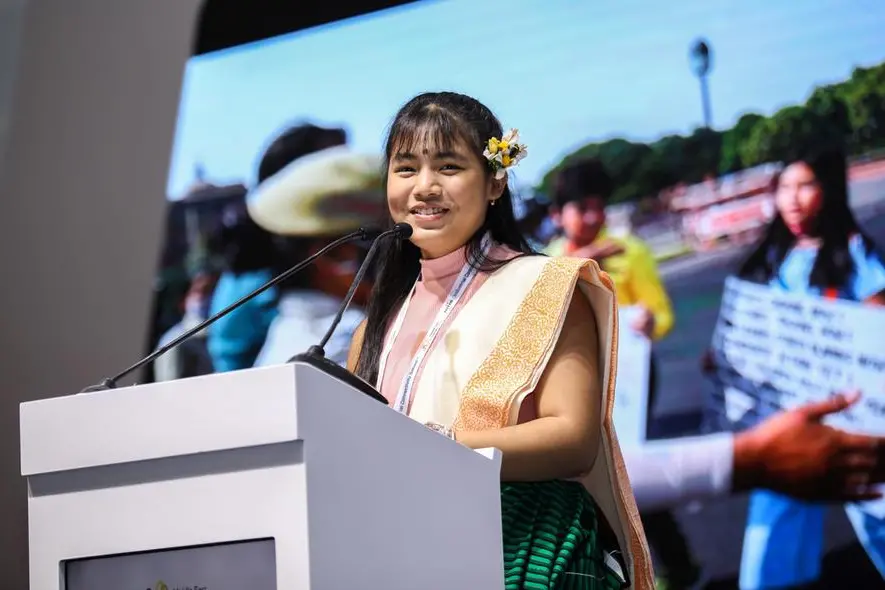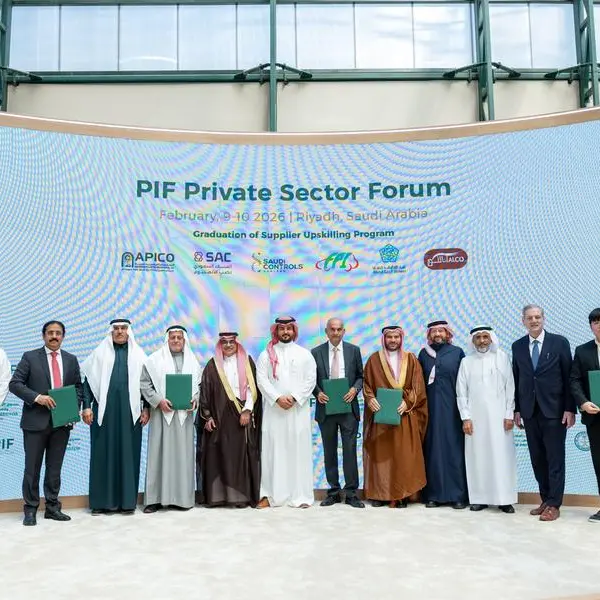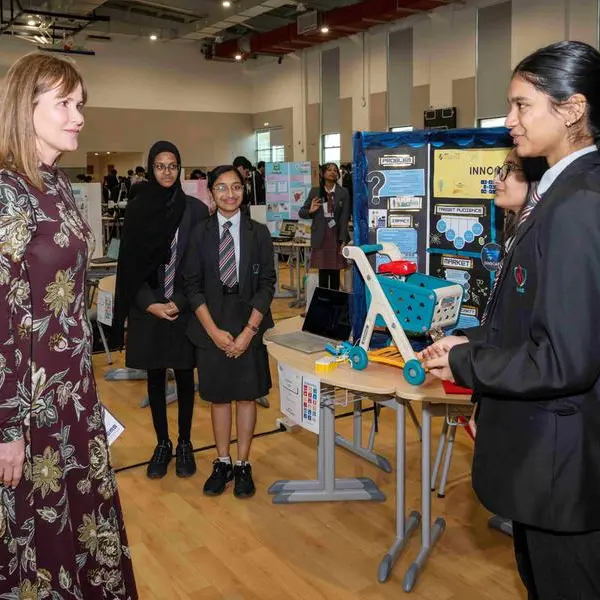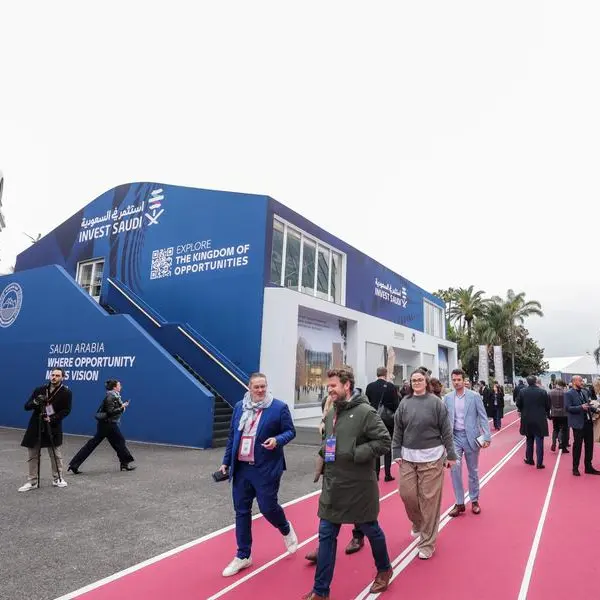PHOTO
- On Day Two of three-day energy summit at Dubai World Trade Centre, expert warns MENA region that solar energy transition must happen soon to avoid disastrous climate issues
Dubai, UAE: Eleven-year-old climate change activist Licypriya Kangujam delivered a passionate plea in front of industry leaders and attendees at Middle East Energy on Wednesday, telling global decision-makers that “if you don’t know how to fix the planet, at least please stop breaking it”.
Kangujam, one of India’s most vocal voices on environmental issues, was speaking on day two of the three-day energy summit at Dubai World Trade Centre. Taking to the Strategic Conference stage, the Manipur native blamed global leaders for failing to prioritise climate change, listing the war in Ukraine, the recent earthquakes in Turkey and Syria, and flash floods in Pakistan among the disastrous effects of their inaction.
“Stop giving beautiful speeches,” said Kangujam, who, as a seven-year-old, addressed global leaders at the 2019 UN Climate Change Conference. “We have heard enough of your empty, false promises. You are busy blaming each other; instead find long-term solutions. Sacrificing the lives of millions of children for the failures of our leaders is unacceptable. Instead of spending billions of dollars on wars, if you spent it on ending poverty, giving education, and fighting climate change, what a wonderful place our Earth would be.”
Kangujam, who through her ‘Monday for Mother Nature’ initiative has planted 350,000 trees across India, called on leaders and governments to “change the system” by immediately taking three key actions: Pass climate change laws that will help control carbon emissions and greenhouse gases; make climate education mandatory on school curriculums; and force every student in the world to plant 10 trees per year in order to pass their finals exams.
“This is the time to wake up and open your eyes. The best gift a parent can give to their children is not a beautiful house, expensive car, or lots of money. It is a beautiful green planet. Your action today will decide the future of tomorrow. My generation are already victims; I don’t want future generations to face these same consequences.”
Kangujam was applauded off stage and the five-person panel discussion immediately following her keynote were clearly in awe of the young woman’s intensity. Speaking on the “Net Zero Carbon Roadmap Implementation” panel, Gagan Porwal, Head of Partnerships – International Markets, Carbon Solutions, at GE Gas Power, estimated the potential financial impact of inaction related to Net Zero could see GDP reduced by 17-18 per cent within 70 years – or in true monetary terms, a negative impact of US$1.7 trillion by 2050.
Dr Maged K Mahmoud, Technology Director, Lead Renewable Energy Advisor at Egypt’s Regional Centre for Renewable Energy and Energy Efficiency, said “we should be ashamed” that the Arab World is home to 55 million citizens without electrical services, before outlining his four pillars to reach Net Zero: Electrify the economy, clean the carbon industry, address left-behind sectors of society, and build a hydrogen economy.
“Twenty years ago, I drafted a strategy that would see Egypt reach 20 per cent sustainable energy by 2020,” Mahmoud said. “The notion was dismissed, but now we have achieved that target, despite two revolutions, COVID-19, and the Russia-Ukraine war.”
Addressing Kangujam directly, he added smiling: “It was one year late, but it proves that dreams can come true. Stick to your dreams.”
This year marks the 48th edition of Middle East Energy, the region’s leading energy summit that explores plans and policies set to shape the region’s future energy outlook while educating an estimated 35,000 attendees on the state of play of the sector. This year’s show has attracted more than 900 energy suppliers, exhibiting across three separate conferences: Strategic, Technical, and Intersolar Middle East.
On day two of Intersolar, Parag Bhamre, a partner at EuPD Research & Joint Forces for Solar, provided an outlook on the MENA solar market, stating that the high risks of and heightened attention on climate change is forcing global governments to transition towards renewable energy.
“Global energy requires a coordinated global shift in both the supply and demand from fossil fuels to cleaner energy,” he said. “However, the transition in the MENA region is more acute than in other parts of the world as it entails transitional risks such as loss of export earnings from fossil fuels, macroeconomic instability, and stranded assets.
“On the other hand, if the region does not transition quickly enough, it is at the risk of warming rapidly, with the risk of water resources dwindling, creating water stress – a real issue. To tackle climate change, the MENA markets have set ambitious renewable energy targets setting the region up for explosive growth in the renewables space, particularly solar.”
According to Bhamre, the UAE has taken the lead in the region’s transition towards renewables: “With the country in sharp focus as it prepares to host COP28 later this year, the UAE National Energy Strategy 2050 has set a target to increase its renewable energy share in its energy mix to 44 per cent by 2050, of which solar PV is expected to contribute 18 per cent. Dubai also aims to increase the share of clean and renewable energy in its energy mix to 25 per cent by 2030, and 75 per cent by 2050.”
Azzan Mohammed, Exhibition Director, Energy Portfolio – MEA at Informa, the event organisers, called climate change a “global issue that affects everyone” and explained the decision to invite environmental activists such as Kangujam is important as the industry gradually looks to phase out fossil fuels and transition to renewables.
“Middle East Energy has been leading the narrative on energy in this region for close to half a century now,” said Mohammed. “Climate change is something we all must pay attention to and so it makes perfect sense to have a passionate and informed speaker such as Licypriya here this year to not only share her vision for the future but to inspire change among some of the industry’s leading decision-makers.”
Middle East Energy 2023 runs from March 7-9 at Dubai World Trade Centre, Halls 1-4, Saeed Halls 1-3, the Trade Centre Arena, and Plaza. To find out more, visit: https://www.middleeast-energy.com/en/home.html
To register, go to: https://middleeast-energy.me/RegisterNow
-Ends-
Middle East Energy (MEE) enjoys a 48-year legacy as a leading global energy industry event.
By catering to the entire product spectrum of the power industry, from critical and backup power to energy storage and management, year after year, the event attracts a more diverse audience of professionals seeking to source products from multiple sectors, drive cost-effectiveness and efficiency, and move projects forward.
MEE has been an essential part of the Middle East's economic expansion, connecting business and introducing new products to the region to build infrastructure, real estate, and commerce.
MEE is now helping governments, organisations and SME’s diversify the generation and supply of energy and build a sustainable future. You can read more at www.middleeast-energy.com
Media Contact:
Candice Luicien
Communications Manager, Action Global
Email: candice.l@actionprgroup.com




















